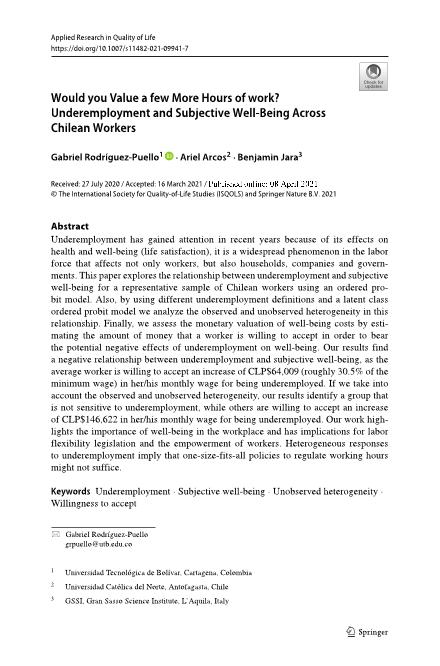Resumen
Underemployment has gained attention in recent years because of its effects on health and well-being (life satisfaction), it is a widespread phenomenon in the labor force that affects not only workers, but also households, companies and governments. This paper explores the relationship between underemployment and subjective well-being for a representative sample of Chilean workers using an ordered probit model. Also, by using different underemployment definitions and a latent class ordered probit model we analyze the observed and unobserved heterogeneity in this relationship. Finally, we assess the monetary valuation of well-being costs by estimating the amount of money that a worker is willing to accept in order to bear
the potential negative effects of underemployment on well-being. Our results find a negative relationship between underemployment and subjective well-being, as the average worker is willing to accept an increase of CLP$64,009 (roughly 30.5% of the minimum wage) in her/his monthly wage for being underemployed. If we take into account the observed and unobserved heterogeneity, our results identify a group that
is not sensitive to underemployment, while others are willing to accept an increase of CLP$146,622 in her/his monthly wage for being underemployed. Our work highlights the importance of well-being in the workplace and has implications for labor flexibility legislation and the empowerment of workers. Heterogeneous responses to underemployment imply that one-size-fits-all policies to regulate working hours might not suffice














